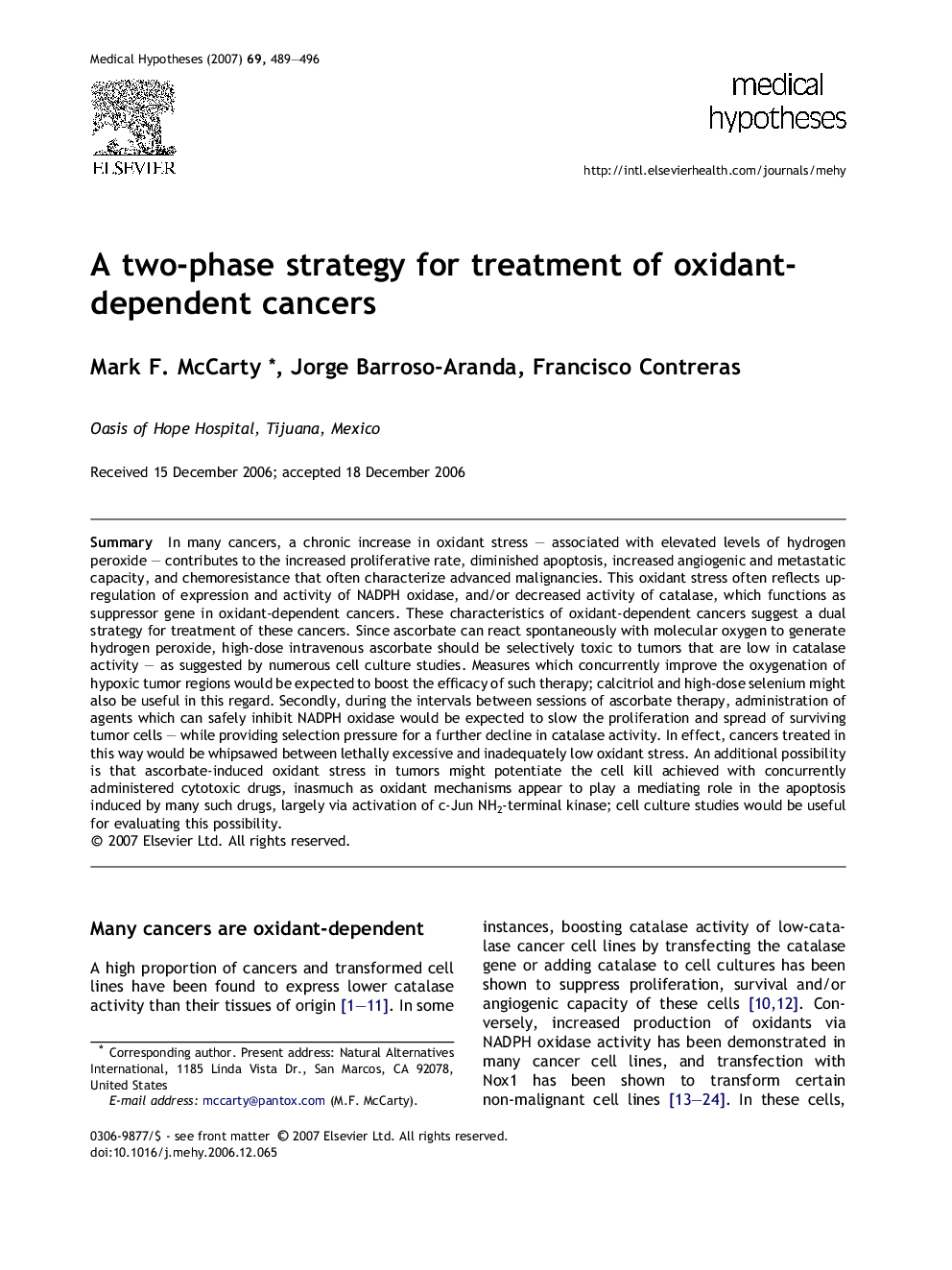| Article ID | Journal | Published Year | Pages | File Type |
|---|---|---|---|---|
| 2492379 | Medical Hypotheses | 2007 | 8 Pages |
SummaryIn many cancers, a chronic increase in oxidant stress – associated with elevated levels of hydrogen peroxide – contributes to the increased proliferative rate, diminished apoptosis, increased angiogenic and metastatic capacity, and chemoresistance that often characterize advanced malignancies. This oxidant stress often reflects up-regulation of expression and activity of NADPH oxidase, and/or decreased activity of catalase, which functions as suppressor gene in oxidant-dependent cancers. These characteristics of oxidant-dependent cancers suggest a dual strategy for treatment of these cancers. Since ascorbate can react spontaneously with molecular oxygen to generate hydrogen peroxide, high-dose intravenous ascorbate should be selectively toxic to tumors that are low in catalase activity – as suggested by numerous cell culture studies. Measures which concurrently improve the oxygenation of hypoxic tumor regions would be expected to boost the efficacy of such therapy; calcitriol and high-dose selenium might also be useful in this regard. Secondly, during the intervals between sessions of ascorbate therapy, administration of agents which can safely inhibit NADPH oxidase would be expected to slow the proliferation and spread of surviving tumor cells – while providing selection pressure for a further decline in catalase activity. In effect, cancers treated in this way would be whipsawed between lethally excessive and inadequately low oxidant stress. An additional possibility is that ascorbate-induced oxidant stress in tumors might potentiate the cell kill achieved with concurrently administered cytotoxic drugs, inasmuch as oxidant mechanisms appear to play a mediating role in the apoptosis induced by many such drugs, largely via activation of c-Jun NH2-terminal kinase; cell culture studies would be useful for evaluating this possibility.
